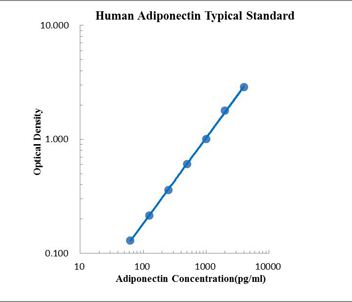货号:


详细请电询
This assay employs the quantitative sandwich enzyme immunoassay technique for the quantitative detection of human Adiponectin. The Human Adiponectin ELISA is for research use only. Not for diagnostic or therapeutic procedures.
Adiponectin, also known as gelatin-binding protein of 28 kDa (GBP-28), adipose most abundant gene transcript 1 (apM1), Adipocyte complement-related protein of 30 kDa (Acrp30), and AdipoQ, is a protein involved in regulating glucose levels as well as fatty acid breakdown. There are four distinct regions of adiponectin: a short signal sequence that targets the hormone for secretion outside the cell, a short region that varies between species, a 65-amino acid region with similarity to collagenous proteins and a globular domain. Adiponectin assembles into different complexes including trimers, hexamers, and higher order oligomeric structures that may affect biological activity. Adiponectin is a protein hormone that modulates a number of metabolic processes, including glucose regulation and fatty acid oxidation and is exclusively secreted from adipose tissue (and also from the placenta in pregnancy) into the bloodstream and is very abundant in plasma relative to many hormones. Adiponectin may also play anti-atherogenic and anti-inflammatory roles, and negatively regulates myelomonocytic progenitor cell growth and TNF-α production in macrophages. Monitoring of Adiponectin levels in serum provides more detailed insights in several pathological situations such as type 2 diabetes, obesity, atherosclerosis and non-alcoholic fatty liver disease (NAFLD).

ICP备案号:
沪ICP备15057650号-1
 沪公网安备31011202005471
沪公网安备31011202005471
雷萌生物科技(上海)有限公司 保留所有版权.